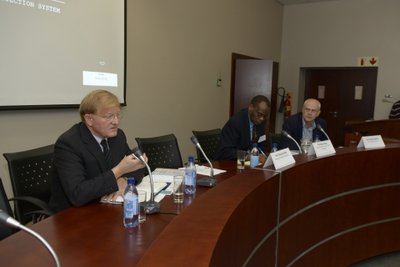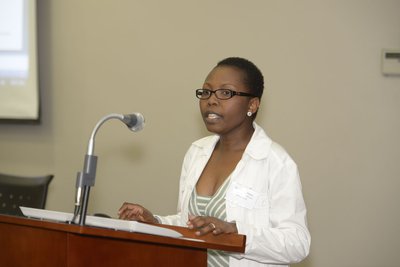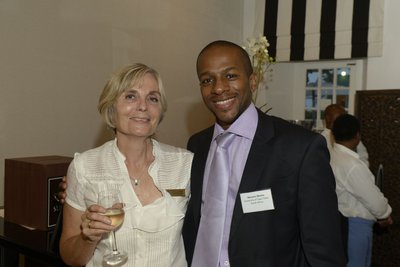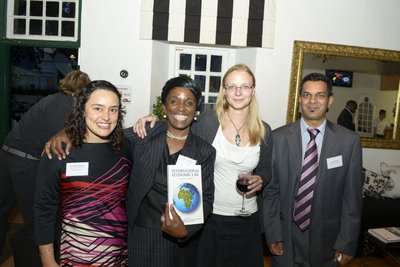19 Mar 2013
Building Trade Relations and Governance in Africa
Academics from the World Trade Institute presented a variety of papers addressing Africa’s economic integration at the Second African International Economic Law Network Conference. The event marked a further milestone in the relations between the WTI and the Mandela Institute within the SECO / WTI Academic Cooperation Project.
From 7-8 March 2013, the African International Economic Law Network (AfIELN) together with the Mandela Institute at the University of Witwatersrand in Johannesburg hosted the Second African International Economic Law Network Conference with a view to discuss how the African economies can be integrated in the global economy for the welfare of the African people. Headed by Malebakeng Forere, Chair of the Network and a PhD student at the WTI, the event attracted 125 scholars from all parts of the African continent and from abroad, as well as government officials and members of the private sector. It provided the ideal platform for sharing thought leadership on how to integrate Africa into the world economy.
Following a plenary discussion, both days were organised into three sessions addressing different topics. As part of the session on intellectual property (IP) and competition, Senior Research Fellow and Science Advisor at the WTI, Dannie Jost, presented a paper entitled, “Innovation and Development in the Age of Climate Change Adaptation: Open or Closed.” She reiterated the need for taking full advantage of the flexibilities in the WTO Agreement on Trade-Related Aspects of Intellectual Property Rights (TRIPS) which can be leveraged by using legacy IP instruments framed by how Africans interpret endogenous sustainable development to meet the challenges of climate change adaptation.
In a second session about investment, Stephen Gelb, Director International Investment Initiative at the WTI presented a paper entitled, “Regulation of entry by foreign firms in South Africa: An OLI approach”. It investigated the interaction between legal and economic approaches to FDI regulation, using as case studies of the entry of mining companies and the retail giant Wal-Mart into South Africa. PhD Research Fellow at the WTI, Victor Saco, questioned how to live without international investment agreements and made suggestions on how to attract, regulate and predict international investment outcomes to generate development. Expanding on the discussion, Romulo Brillo, PhD candidate at the WTI examined Brazil’s approach to investment policy-making and dispute settlement without investment treaties. The two presentations provided a guide for African countries on how to attract investment without giving too much to the detriment of the host countries.
Thomas Cottier, Managing Director of the WTI, spoke during the plenary session on day two about how to move “from special and differential treatment to graduation in the process of global integration”. He also chaired the first session on multilateral economic governance and regional integration. During the second session on governance, sustainable development and infrastructure, Rafael Leal-Arcas, Senior Research Fellow at the WTI, presented a paper entitled, “The Fragmented Governance of the Global Energy Economy and its Impact on Global Energy Security: a Legal Analysis.”
Malebakeng Forere, Doctoral Fellow at the WTI, spoke about “African states’ participation in WTO dispute settlement” as part of the third session on dispute settlement. Contrary to the idea that African states are deterred from participating in WTO dispute settlement because of high costs, low trade flows or the complexity of the WTO dispute settlement system, Ms Forere’s paper gave a new dimension on why the African states are scarce in WTO dispute settlement.
Supported by the Swiss State Secretariat for Economic Affairs (SECO) and the World Trade Organization (WTO), the event further reinforced the status of the Mandela Institute as a leading centre in Africa on trade policy. At the same time, the exchange in dialogue made an important contribution in achieving the goals of the SECO / WTI Academic Cooperation Project.
Further info
Report from the Conference (by Mandela Institute)
Photos of the Conference





